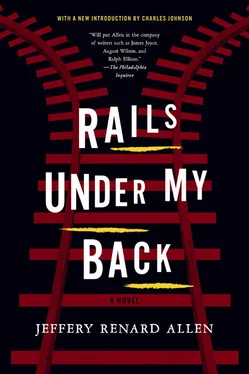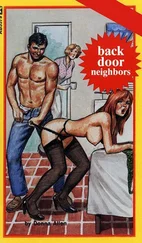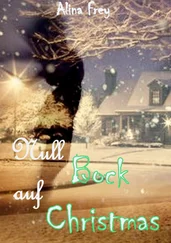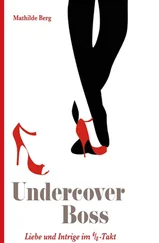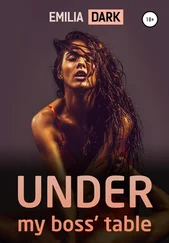Lula Mae had inserted strips of white paper throughout the Bible, perhaps to catalogue important sections, clue her to crucial passages. Sheila found a yellowed newspaper clipping sandwiched between two pages.

Sheila returned the clipping to its exact place. She ran her palm over the book’s rough cover. She left it here for me to find, she said to herself, thinking, and thinking almost saying aloud. She put the Bible in her suitcase and locked the latches.
SHE MUST BUY NEW CLOTHES for the funeral. A plague of moths had eaten her old ones. (Could this be? Is it not true that moths eat wool and wool only? Perhaps certain varieties of moths feed on a range of fabrics.) An army of babies rode off in her shoes, tanks.
She fluttered, angels in her body. She blessed the railroad plank above the grass-covered drainage ditch. Blessed the ditch itself. Blessed the chain-link fence that surrounded Lula Mae’s property, contained it. Blessed the lawn. The lawn furniture. Trees — apple, pear, and plum. Blessed the concrete walkway leading up to the house. Blessed the two concrete front-porch steps. Blessed the front porch. Blessed the lil house out back behind the house. Blessed the two railroad planks positioned side by side to offer a walkway to the three concrete back-porch steps. Blessed the back-porch steps. The back porch itself, an uncovered block of concrete. Blessed the kitchen. The bathroom. The living room. The bedroom where Sheila slept. The second bedroom where Mr. Pulliam used to sleep, the bedroom that Lula Mae rented out after he fled to heaven. She blessed the hall. The attic could wait.
Blessing done, she entered the second bedroom where Mr. Pulliam used to sleep, the bedroom that Lula Mae rented out again and again after he fled to heaven. She undressed and slid under the covers, full and satisfied. Sharp-edged silence. Sheila slept quiet across the hall behind a closed door. Memory wheezed in the darkness. She put her Bible underneath her pillow and heard Lula Mae talking.
DAMN, MAN. Can’t you see that Indian behind you?
Gunfire crackled through Lula Mae’s house.
Man, is you blind?
Turn that TV down.
What? Woman, you ain’t left to get my medicine?
A folk can’t even think round here. All that clamor.
Think what? Think bout gettin my medicine. Mr. Pulliam breathed.
Fool, get out of my face, Lula Mae said.
Woman, you make me, Mr. Pulliam said. The words bubbled, like he had something in his throat, phlegm, dammed spit.
You touch me, I steal yo life.
Mr. Pulliam grunted at Lula Mae. Turned back to the loud TV. Lula Mae left the room.
Mr. Pulliam sat bent forward on the divan, face almost touching, kissing the TV screen. He breathed beneath the TV’s traveling volume. The sound of his breathing always reached the front door ten steps before he did. His belly bulging his ribbed, sleeveless undershirt like a white laundry sack. He plowed clean paths through his lathered face with a straight razor. Fool, how many times I tell you to close the door when you in the bathroom. Ain’t nobody interested in your business. Lula Mae was careful to tell Porsha not to touch his food. (He had his shelf in the refrigerator, and she hers. So too the freezer.) Not to enter his bedroom.
Lula Mae returned with her largest skillet, black iron, creased with shining grease.
Woman, what you think you gon do wit that skillet?
Lula Mae rung the skillet against his head.
Damn, woman. You tryin to kill me. I’m callin the police.
Call them.
He did.
The white officer arrived with the speed of arterial blood.
Can somebody turn off that there TV?
Porsha turned it off.
You see what the woman done to me? Mr. Pulliam gestured to the white kitchen towel pressed to his head. I jus asked her to get my medicine. I’m sick.
Sick in the head.
Damn this woman. She sposed to be my wife. Look at what she done to me.
I can’t miss it.
Take her to jail. I worked a good job. I’m sick.
He struck me.
Law, I swear I never touched that woman. I swear on a mountain of Bibles.
Don’t let your nasty mouth mention the Good Book.
I’m sick.
He struck me.
Well, seem like what we got here don’t add up. Somebody talkin out the side they face.
Law, it ain’t me.
It is you.
You both want to go to jail?
I’m sick.
Not sick enough.
Well one of you is talkin sideways. Girl—
The white officer looked at Porsha.
— what happened here?
That’s right. My granddaughter here can testify.
That’s fine wit me. She saw what happen. Tell Law here what happen.
Porsha said nothing. She had something to say but the words wouldn’t come.
Girl look scared to me.
She from the city. Up North.
Maybe that explain it. City life. Come on here. The white officer took Mr. Pulliam by the shoulder and moved him toward the front door. We better see bout yo head. Now, ma’m. You be nice. I don’t wanna come back here. I do, both yall comin down wit me to the jail. We got plenty room.
Law, she attacked me.
The white cop looked at Porsha. Something mighty wrong wit that girl.
She’s a mamma’s girl. Lula Mae smiled. When she was a toddler, I used to call her Duck. Followed her mamma everywhere.
Well, pigeons never fly far from home, the white officer said. All wrapped up in them apron strings.
Young folks. Lula Mae smiled. What can you do? Who can you blame?
Blame? the white officer said. I know this, what you put down is what pops up.
Lula Mae gave the officer a hard look. Her brown eyes toughened like shit.
WHERE DID LULA MAE GET THE TREES? Porsha said. Did she plant them herself or were they already here?
I don’t know, Mamma said.
EACH MORNING, Lula Mae angled into her white dress, pulled old lady stockings over her cotton-scarred legs, slipped on her white rubber-soled shoes — nurse’s shoes she called them, tennis shoes she called them — fitted the helmet of her wig, clamped in her horse bit of teeth, stepped into her face — it shone like a powdered mask — checked her clam-shaped purse— Where my pocketbook? — then hustled off to clean some white folks’ house.
You be good while I’m gone. Don’t act up.
GRACIE STARTED IT.
No I didn’t.
Yes you did.
You started the whole thing.
You started it.
No I didn’t. You did. Mamma was crying now.
You a lie. You started it. Gracie was crying now too.
You the one that’s a lie. You know you started it.
I ain’t start shit.
Yes you did.
Why you wanna lie?
You know you started it.
SHE WOULD KEEP THIS FOR HERSELF. All those years she had never mustered the nerve to ask Lula Mae to give it to her. The photograph shows three card players in a bare-walled shack. Two brothers and a stranger. All three wear tattered clothing. The older brother, mustache and all, passes the younger brother a card under the table, passes the card with his toes.
COME ON HERE. We going to the dolla sto.
The dollar store on Main Street next to Kress’s (the five-and-dime), next to the bicycle shop where Porsha purchased her first real bicycle (without training wheels), across the street from the Rexall, where you could buy anything you wanted. Lula Mae walked to the dollar store every day and spent money simply because the spending was cheap. Items two for a dollar, four for a dollar, ten for a dollar. Stocking up.
Come on here. We going to town.
Читать дальше
